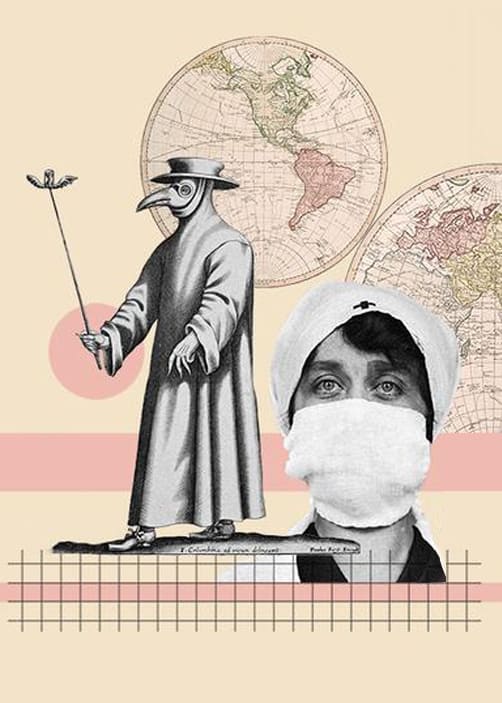Academic Cooperation is Vital to Weathering the Covid-19 Crisis
When the future is so uncertain, it’s only natural to retreat to what you know and do best. But it’s never been more important for academics to collaborate, cooperate and support each other to produce research that is both relevant and helpful to wider society.
This essay is part of the series “The New Normal: Perspectives on the Impact of Covid-19 on Academia”.
It’s highly likely that the COVID-19 pandemic will mean that we’ll see public funding for research soon starting to dry up. Many of us academics are deeply concerned about this situation. We are at the beginning of a global financial crisis and so far, we’ve been buffered by public subsidies; but that kind of public support cannot and will not continue forever and economies across the globe will have to struggle with the repercussions of the crisis for a long time.
As academics, we must ask ourselves: what can we do to make our research more pertinent to the pandemic sweeping the globe, and how will we come together as an academic community to assist the societies that provide the funds for our work?
Academics Must Stick Together
What’s clear is that scholars have many important skills to offer. Researchers from every discipline – not just the natural sciences – can play a pivotal role in helping societies better understand the impact of the virus. For example, in my own field, linguistics, we can contribute to understanding how the language we use about the pandemic frames thinking, public opinion and ultimately, influences public policy. However, we must engage in this research together – across disciplines and communities. Not only will future funding depend on how we act now, we also have a responsibility towards the socio-economic world.
“Now is not the time for us to retreat from the world but rather, to engage with it fully and actively.”
I believe that academic collaboration and community are more vital than ever. Now is not the time for us to retreat from the world but rather, to engage with it fully and actively. We must be more willing to work across disciplines with our fellow academics to explore new areas of research. We must also stay alert to the fact that the pandemic does not affect all academics equally and this might in turn impact plurality, originality and innovation.
The reality seems to be that some academics are more protected from the worst impacts of the virus than others and some are more able to continue ‘business as usual’ than others – and I’m very thankful they are. However, good research requires strong, collaborative networks and diverse voices from all generations. When academics retreat to their country houses these networks are affected. The academics who are most shielded seem to be those in permanent positions, with many years’ experience and those who already have well-established networks.
Careers on Hold
The pandemic has dramatically reduced the number of events and networking opportunities we attend. Yes, many conferences are online but anyone who has ever attended one knows they’re not the same as a face-to-face event. Attending physical conferences serves as an important way for our junior colleagues to meet people and form networks, and given that the academic job market (still) heavily relies on networks, the absence of conferences deprives less experienced researchers of an important aspect of career development.
“We’re social animals and we miss the physical interaction with other people.”
As in any other area of occupation, the lockdown of schools and child-care facilities means that academics with young families have struggled with the coordination of work and private life. Some have found work from home situations very difficult and many early career researchers – especially those studying and working abroad – without family or friends often suffer from loneliness. Many of my students and PhD candidates mention to me that they’ve had a hard time focusing on their study programmes and dissertation projects during the lockdown because they’ve felt isolated and alone in their flats or rooms. We’re social animals and we miss the physical interaction with other people.
In Summary
For a long time now, I’ve advised my PhD students that when planning their careers they need to be pragmatic and always have a plan B. Today, academics at every level also need to be pragmatic and understand that the pandemic will bring systemic change. To weather the storm we need to engage with, and assist, the societies we live in, but also help and support the members of our own academic communities who might be struggling during the pandemic. Now is not the time to hunker down – cooperation is key.
We recommend this related collection of think pieces
[Title Image via Getty Images]
